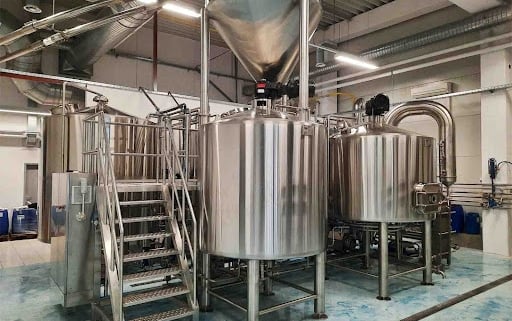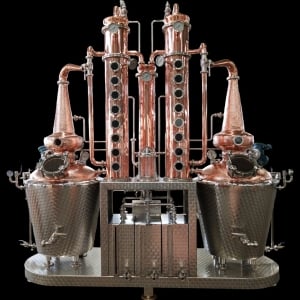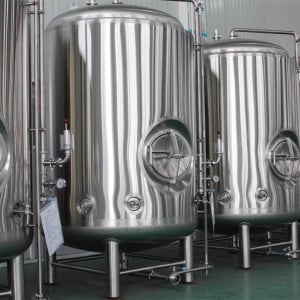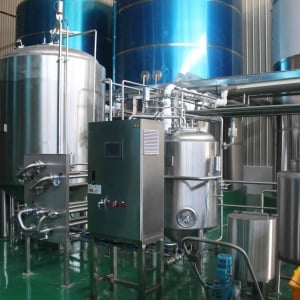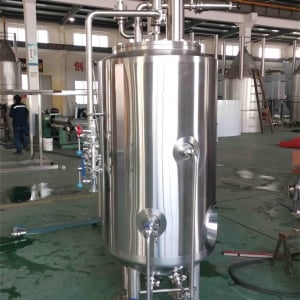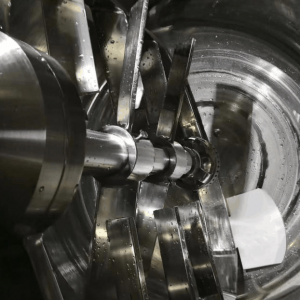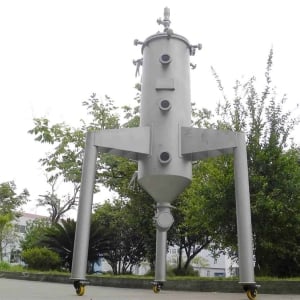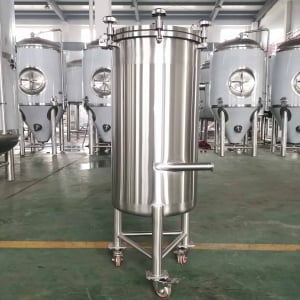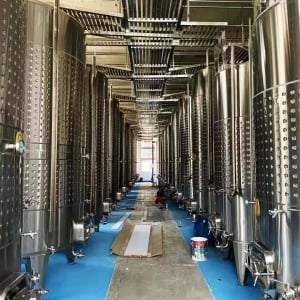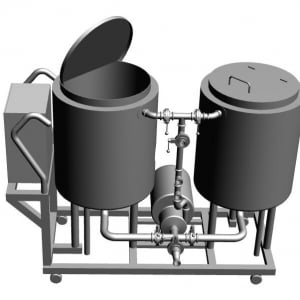4 Vessel Brewing Systems
For passionate brewers seeking to elevate their craft to new heights, a 4 vessel brewing system beckons as the ultimate tool for precision and control. Imagine a brewing process where each stage unfolds in a dedicated vessel, allowing for finer manipulation of temperature, timings, and efficiency. That’s the magic of a 4 vessel system, and this comprehensive guide will unveil its secrets, helping you decide if it’s the perfect fit for your brewing ambitions.
A Guide to the 4 Vessels
A 4 vessel brewing system is an orchestra of specialized tanks, each playing a crucial role in the brewing symphony. Let’s meet the key players:
- Mash Tun: This is the heart of the brewing process, where crushed grains are steeped in hot water to convert starches into fermentable sugars. The mash tun in a 4 vessel system often features a built-in heating system and a false bottom for efficient lautering (separation of wort from spent grains) later.
- Lauter Tun: Imagine a giant colander – that’s essentially the lauter tun’s function. Here, the sweet liquid wort is separated from the used grain husks through a process called lautering. The lauter tun’s design, with a perforated false bottom and collection system, ensures a clear and efficient separation.
- Kettle: The kettle is where the wort undergoes a metamorphosis. Here, the wort is boiled, hops are added for bitterness, aroma, and flavor, and unwanted proteins are coagulated and removed. The kettle’s capacity and heating efficiency are crucial factors for a smooth boiling process.
- Whirlpool: This ingenious vessel utilizes a vortex motion to separate the wort from any remaining solids like hop trub. The whirlpool’s centrifugal force creates a clarified wort, ready for fermentation, leading to a cleaner and more stable beer.
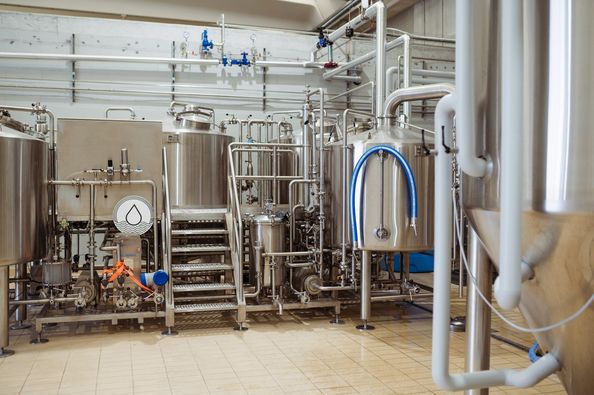
The Brewing Process: Orchestrating Flavor in Four Acts
Now that you’ve met the instruments, let’s witness the brewing process come alive in a 4 vessel system:
- Mashing: In the mash tun, the grain meets hot water, initiating the enzymatic conversion of starches into sugars. The 4 vessel system allows for precise temperature control throughout the mash, enabling brewers to explore different mash profiles for unique flavor profiles.
- Lautering: Once the mashing is complete, the sweet wort is transferred to the lauter tun. Here, the magic of lautering separates the sugary liquid from the spent grains. The dedicated lauter tun, with its carefully designed filtration system, promotes a clear and efficient separation, maximizing wort yield and minimizing grain loss.
- Boiling: The clarified wort journeys to the kettle, where it undergoes a vigorous boil. This step serves multiple purposes: it sterilizes the wort, concentrates its sugars, and introduces the magic of hops. The 4 vessel system’s dedicated kettle allows for precise control over boil duration and intensity, impacting hop utilization and beer character.
- Whirlpooling: After the boil, the hot wort takes a final spin in the whirlpool. This vessel utilizes a swirling motion to remove any remaining hop trub or hot break material, resulting in a crystal-clear wort for fermentation. The whirlpool’s efficiency contributes to a smoother fermentation process and a more polished final beer.
Capacity, Space, Design, and Customization: Planning Your 4 Vessel System
Unlike its simpler counterparts, a 4 vessel system requires dedicated space and thoughtful planning. Here are some key considerations:
- Capacity: 4 vessel systems come in a range of sizes, catering to breweries of all production scales. From small, batch brewing systems to large-scale production facilities, choose a system that aligns with your brewing goals and output needs.
- Space Requirements: These systems occupy more space than their 2 or 3 vessel counterparts. Factor in not just the footprint of each vessel, but also the need for walkways, access for cleaning, and ancillary equipment like pumps and heat exchangers.
- Design and Layout: The arrangement of your vessels plays a crucial role in efficiency and workflow. Consider the proximity of each vessel, the ease of transferring wort between stages, and the placement of utility connections. Many manufacturers offer customizable layouts to suit your specific brewing space.
- Customization Options: Modern 4 vessel systems offer a range of customization options. From heating systems (steam, electric, direct fire) to advanced automation features, tailor your system to your brewing philosophy and desired level of control.
- System Size: As expected, larger systems with higher production capacity come with a steeper price tag. A system suitable for a small brewpub will cost significantly less than one designed for a large-scale production brewery.
- Material and Construction: The quality of materials used in the construction of your system impacts its cost. Stainless steel is the industry standard, and the grade and thickness of the steel can influence the price. Additionally, features like insulation and cladding add to the overall cost.
- Heating System: The chosen heating method (steam, electric, direct fire) can affect the price. Electric heating systems tend to be more affordable upfront, while steam offers superior heat control but requires additional boiler infrastructure. Direct fire systems are typically the least expensive but demand a higher level of skill and attention during operation.
- Automation Level: The degree of automation you desire significantly impacts the cost. A basic system with manual controls will be less expensive than one equipped with automated valves, temperature control systems, and programmable brewing profiles.
Suppliers and Price Range: Finding Your Perfect Fit
The brewing equipment landscape offers a diverse range of suppliers for 4 vessel systems. Here’s a glimpse into what to expect:
| Supplier Type | Price Range (USD) | Typical Target Market |
|---|---|---|
| Local/Regional Manufacturers | $25,000 – $150,000 | Smaller breweries, brewpubs, homebrewers with significant budgets |
| Established International Brands | $50,000 – $500,000+ | Breweries of all sizes, from small craft operations to large production facilities |
| Chinese Manufacturers | $15,000 – $100,000 | Budget-conscious breweries, recognizing the potential for lower upfront costs but considering potential quality variations |
Important Note: These price ranges are estimates and can vary depending on the specific features, size, and customizations of the system. It’s crucial to obtain quotes from multiple suppliers to ensure you’re getting the best value for your investment.
Installation, Operation, and Maintenance: Keeping Your 4 Vessel System Running Smoothly
A 4 vessel system is a powerful tool, but like any complex machinery, it requires proper installation, operation, and maintenance. Here’s a breakdown of these crucial aspects:
- Installation: Professional installation by experienced technicians is highly recommended for a 4 vessel system. This ensures proper setup, calibration of equipment, and verification of functionality.
- Operation: While 4 vessel systems offer greater control, they also demand a higher level of brewing knowledge and skill from the operator. Understanding each stage of the brewing process, proper equipment operation, and cleaning procedures are essential for successful brewing.
- Maintenance: Regular cleaning and maintenance are paramount for the longevity and performance of your system. This includes cleaning each vessel after each use, maintaining pumps and valves, and adhering to a preventative maintenance schedule recommended by the manufacturer.
Choosing the Right Supplier: A Guide for Discerning Brewers
Selecting the right supplier for your 4 vessel system is a critical decision. Consider these factors to ensure a successful partnership:
- Reputation and Experience: Opt for a supplier with a proven track record and a strong reputation in the brewing community. Look for testimonials from satisfied customers and inquire about the supplier’s experience with similar projects.
- System Quality and Customization Options: Evaluate the quality of materials and construction offered by the supplier. Furthermore, explore the level of customization available to tailor the system to your specific needs and brewing philosophy.
- Service and Support: Reliable after-sales service and technical support are crucial for any brewing equipment purchase. Ensure the supplier offers readily available support, including spare parts, troubleshooting assistance, and potential on-site service options.
- Cost and Value Proposition: While cost is a significant factor, consider the overall value proposition. Look beyond the initial price tag and evaluate the features, quality, service, and warranty offered by the supplier.
Pros and Cons: Weighing the Advantages and Limitations of a 4 Vessel System
The decision to invest in a 4 vessel system hinges on a clear understanding of its advantages and limitations. Let’s delve into both sides of the coin:
Advantages:
- Precision and Control: The dedicated vessels allow for finer control over each stage of the brewing process, enabling brewers to experiment with different mash profiles, hop additions, and boiling times to achieve their desired flavor profiles.
- Efficiency: The dedicated lauter tun promotes efficient wort separation, maximizing extract yield from the grain. Additionally, the whirlpool effectively removes hop trub, leading to a cleaner fermentation and potentially reducing beer losses.
- Scalability: Many 4 vessel systems offer modular designs, allowing for future expansion. This means you can start with a smaller system and add additional vessels or capacity as your brewing operation grows.
- Versatility: The ability to precisely control each stage of the brewing process opens doors to a wider range of beer styles. From delicate lagers to robust imperial stouts, a 4 vessel system empowers brewers to explore the full spectrum of brewing possibilities.
- Professional Image: For breweries aiming to project a professional image, a 4 vessel system signifies a commitment to quality and control. This can be a valuable asset in attracting customers and establishing a reputation for excellence.
Limitations:
- Cost: As discussed previously, 4 vessel systems are a significant investment compared to their simpler counterparts. The initial cost can be a barrier for some brewers, particularly those starting small.
- Space Requirements: These systems demand dedicated space to accommodate the vessels, ancillary equipment, and walkways for operation and cleaning. Breweries with limited space may need to carefully consider their layout and workflow.
- Complexity: Operating a 4 vessel system requires a higher level of brewing knowledge and skill compared to simpler systems. Brewers need to be comfortable with the intricacies of each stage and the potential for troubleshooting issues.
- Cleaning and Maintenance: The additional vessels translate to more cleaning and maintenance requirements. Breweries need to factor in the time and resources needed to keep the system in top condition.
Making the Choice: Is a 4 Vessel System Right for You?
Ultimately, the decision to invest in a 4 vessel system boils down to your individual brewing goals, budget, and available space. Here are some key questions to consider:
- What is your production scale? For small-scale brewing operations, a 3 vessel system or even a 2 vessel system might be sufficient. 4 vessel systems are ideal for breweries aiming to scale up production and achieve greater control over their beers.
- What level of control do you desire? If you crave meticulous control over every aspect of the brewing process, a 4 vessel system offers the ultimate platform for experimentation and achieving specific flavor profiles.
- What is your budget? Be realistic about your financial resources. Factor in not just the initial cost of the system but also the ongoing costs of maintenance and potential upgrades.
- Do you have the space? Carefully evaluate your brewing space and ensure it can accommodate the footprint and operational needs of a 4 vessel system.
- What is your level of brewing experience? Operating a 4 vessel system requires a higher level of brewing knowledge and skill. If you’re new to brewing, it might be wise to gain experience with a simpler system before making the jump to a 4 vessel setup.
By carefully considering these factors, you can make an informed decision about whether a 4 vessel system is the right fit for your brewing journey. Remember, the ideal brewing system empowers you to create exceptional beers while aligning with your specific needs and goals.

FAQ
Q: What are the benefits of a 4 vessel brewing system over a 2 vessel system?
A: 4 vessel systems offer greater control over each stage of the brewing process, leading to improved efficiency, wort clarity, and ultimately, higher quality beer. Additionally, they allow for greater versatility in exploring different brewing styles.
Q: Are there any 4 vessel systems suitable for homebrewers?
A: While less common, some smaller-scale 4 vessel systems cater to homebrewers with significant budgets and ample space. However, for most homebrewers, a 2 vessel or 3 vessel system is a more practical and cost-effective choice.
Q: How much ongoing maintenance does a 4 vessel system require?
A: Regular cleaning and preventative maintenance are crucial for the longevity and performance of a 4 vessel system. The specific requirements will vary depending on the system size and complexity, but expect to dedicate time after each brewing session for cleaning and follow a recommended maintenance schedule.
Q: What safety considerations are there when operating a 4 vessel system?
A: As with any brewing equipment, safety is paramount. Familiarize yourself with the safe operation procedures for each vessel, including proper lifting techniques, hot liquid handling, and sanitation protocols. Investing in proper personal protective equipment (PPE) is also recommended.
By incorporating these elements, you’ve created a comprehensive and informative guide on 4 vessel brewing systems. This content empowers brewers of all experience levels to make informed decisions about this powerful brewing technology.

